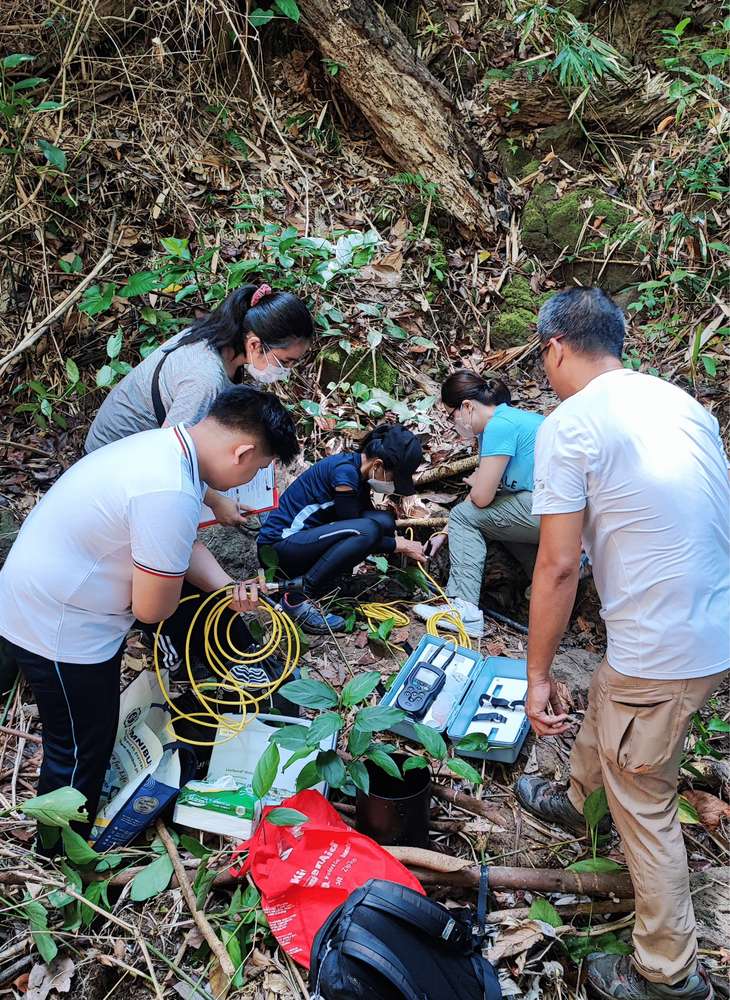MANILA, Philippines (Jun 2025) – A hidden environmental crisis is threatening the Philippines’ most vital water source, with new research revealing that groundwater quality across the archipelago is deteriorating at an alarming rate due to agricultural contamination and seasonal weather extremes.
The invisible water reserves beneath Filipino soil provide the backbone for the nation’s agriculture and daily life. Yet a comprehensive study by University of the Philippines scientists has uncovered disturbing patterns of contamination that could endanger public health and food security for millions of Filipinos.
Dr. Francis S. Magbanua of UP Diliman’s Institute of Biology led a groundbreaking investigation across five provinces. His team discovered that farming activities are systematically poisoning underground water sources while extreme weather brought by climate change amplifies the damage.
“Groundwater is a limited resource, and its quality is steadily declining,” the researchers warn in their study. “Human population growth, economic development, and environmental changes all contribute to the pressure on this vital resource.”
The research examined water quality in agricultural and forested areas across Ilocos Sur, Benguet, Nueva Ecija, Cebu, and Davao del Norte. The findings paint a troubling picture of how Filipino farming practices and natural weather patterns are creating a perfect storm for water contamination.
Agricultural areas consistently showed warmer, chemically-laden groundwater compared to forested regions. The contamination stems from farming chemicals that seep into underground water sources, creating health risks for communities that depend on wells and springs.
Forested areas maintain cleaner, cooler water with higher oxygen levels. However, even these natural sanctuaries showed signs of contamination, suggesting that environmental damage extends beyond farmlands.
The study revealed how the Philippines’ distinct wet and dry seasons create additional threats. During the rainy season, agricultural runoff carries harmful chemicals deeper into groundwater systems. The dry season concentrates these pollutants as water levels drop.
“During extreme weather events, runoff from farmlands can carry harmful chemicals into the groundwater, threatening the ecological services it provides, its biodiversity, and the general public’s health,” according to the press release obtained by our editors.
The contamination affects dissolved organic compounds that indicate human activity. These chemical markers appeared even in pristine forested areas, showing how widespread the problem has become.
The research forms part of the Philippine Groundwater Health Index Project, funded by the Department of Science and Technology. The initiative aims to create nationwide standards for protecting underground water sources that millions of Filipinos rely on daily.
Current monitoring efforts remain fragmented across the country. This creates dangerous gaps in understanding where contamination is worst and how quickly it spreads.
The timing of this research coincides with growing concerns about water security in the Philippines. Climate change is intensifying both drought and flooding, while population growth increases demand for clean water sources.
Agricultural communities face the greatest immediate risks. Farmers who depend on groundwater for irrigation may unknowingly use contaminated water that reduces crop yields and enters the food chain.
The health implications extend beyond rural areas. Urban centers that tap into regional groundwater systems could face widespread contamination if current trends continue unchecked.
Filipino families should demand immediate action from local and national authorities to address this crisis. Contact your representatives to support comprehensive groundwater protection measures and increased monitoring funding that could safeguard the water security of future generations.


